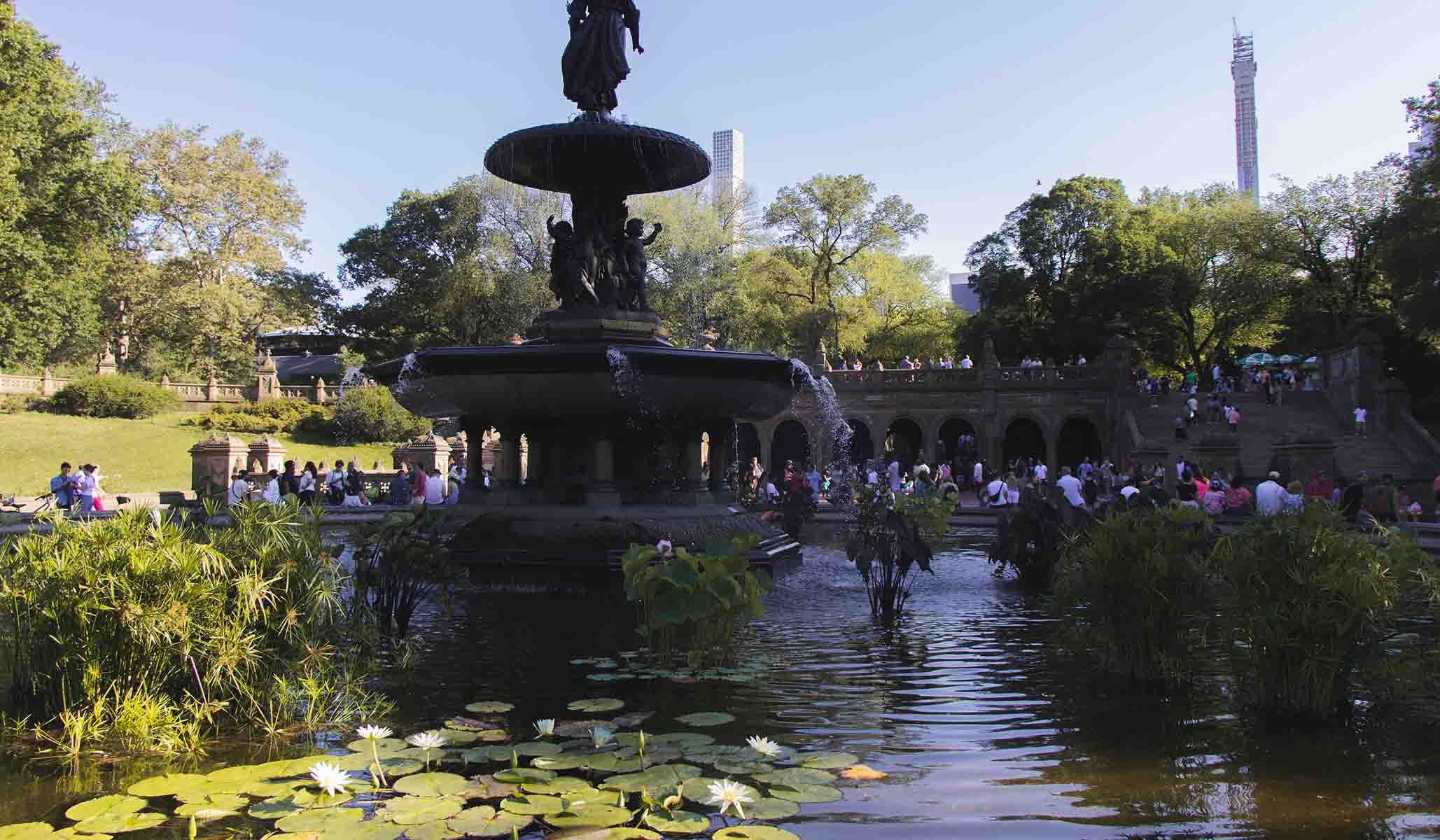


Picture a bright Easter morning in Central Park, New York City. Trees are blooming; daffodils are having a field day. A couple hundred people are on Bethesda Terrace, milling about the fountain, strolling through the arcade. On nearby Bow Bridge, people are taking pictures, as usual.
There are tourists, speaking a range of languages. There are families, couples, and scattered singles. Old and young. Frolicsome children and doting grandparents. Mothers and fathers pushing strollers.
Honestly, Seurat could not have imagined a lovelier Sunday in the park.
Near Bethesda Fountain, however, was a lone musician: singing and playing the guitar, with massive amplification. Enough amplification for Madison Square Garden, or Yankee Stadium. And that was all you could hear. Him.
He decided — or some permit-granting bureau decided — that everyone was going to hear him, no matter what. You had no choice, if you were in that part of the park.
You could decide what to wear. You could decide what to see. You could decide what to taste, and touch. (When it comes to smells, you’re sometimes out of luck.) But you could not decide what you would hear. That was decided for you.
Did a majority want to hear the fellow by the fountain? I doubt it. But what if a majority did, and a minority did not? A minority has certain rights.
The man did not sing or play well, in my judgment. But the point is the imposition. Even if Caruso had been singing, accompanied by Segovia: Who asked for the music, at that volume? Why did the one man have the power to determine the atmosphere for all?
It’s one thing if there’s an announced concert; but this was just an innocent morning in the park (and Easter Sunday, at that).
Farther south, as you approached the Naumburg Bandshell, the music faded. But before it died out, you picked up a rock ensemble, blasting away. The ensemble was not in the bandshell. This was not some scheduled concert. The rockers were simply plunked down in the vicinity.
From their blasting, there was no escape. In the park, no quiet was permitted. No park sounds were permitted, either! People talking, dogs barking, birds chirping . . .
As they stood in stone, Beethoven and Schiller had to take it. (I am speaking of statues.) Personally, I would rather have heard their “Ode to Joy.” But even more, I would rather have heard nothing — at least nothing so amplified.
In recent years, 7-Eleven stores have taken to driving vagrants away by blaring classical music, including opera. Works like a charm (however insulting that may be to lovers of classical music). Central Park does not intend to drive people away with rock — right?
Years ago, I was in London, on a mellow fall day. The hour was twilight, or “gloaming,” as Brits would say. Kensington Gardens and Hyde Park had a classic beauty. Geese flew low. Everything was utterly still. Then a rocker filled the air, with enough amplification to be heard in Birmingham.
I couldn’t help wondering: “What gives him the right? How does one person decide for all? Shouldn’t he be embarrassed, to be imposing himself that way? Is he lifting a middle finger to the world? Or does he think he’s so wonderful that the world should be grateful to hear him, rescued from that terrible stillness?”
In subway stations, here in New York, there are often musicians, amplified — hugely amplified, despite a small space and a low ceiling. Are they afraid someone won’t be able to hear? That our ears won’t hurt? You have to endure what they are doing, if you want to take a train. But you have to wait only one, two, ten minutes — and then you’re off. Sunday in the park is a little different.
Generally speaking, we are free of political harangues, with booming amplification. Political harangues from which there is no escape. Why music should be different, I’m not sure.
There is no pleasing everyone. Some, surely, enjoyed the musician on Bethesda Terrace on Easter morning. But I bet most would have opted for no music at all. And I think no music is the right default.
Free music in New York, and other places, is a wonderful thing. But freedom from music can be pretty wonderful, too.
